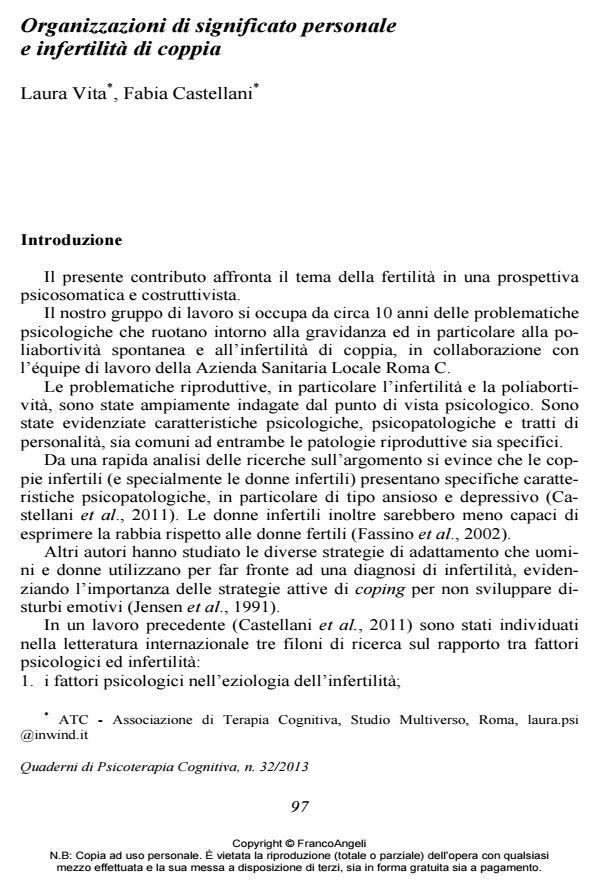Personal meaning organizations and couples’ infertility
Journal title QUADERNI DI PSICOTERAPIA COGNITIVA
Author/s Laura Vita, Fabia Castellani
Publishing Year 2013 Issue 2013/32
Language Italian Pages 12 P. 97-108 File size 443 KB
DOI 10.3280/QPC2013-032007
DOI is like a bar code for intellectual property: to have more infomation
click here
Below, you can see the article first page
If you want to buy this article in PDF format, you can do it, following the instructions to buy download credits

FrancoAngeli is member of Publishers International Linking Association, Inc (PILA), a not-for-profit association which run the CrossRef service enabling links to and from online scholarly content.
The present work deals with infertility in a psychological, psychosomatic and constructivist perspective. Reproductive problems, especially infertility and poliabortivity, have been widely investigated from a psychological point of view. Psychological, psychopathological and personality features have been observed, some similar in the two reproductive pathologies and some specific. Anxious and depressive traits are in common, but infertile women show higher levels of psychopathology and specific characteristics such as high level of anger. Even if many works have been published, there is a lack of a complex holistic view of this topic. According to us, a clear cut-distinction between cause and effect might not be drawn, as well as between somatic and psychological factors. Moreover, many studies have focused on infertile women and not infertile couples. Constructivist research is at the very beginning, but some interesting observations have been made. For example, we found a high incidence of obsessive personal meaning organization in infertile couples. Perhaps, the theme of "contact" is a very important one for these couples. We believe that psychological support and psychotherapy are essential for couples with fertility difficulties. In a constructivist perspective, we think that the investigation of personal meanings is fundamental, especially how pregnancy and maternity can influence life, personal identity and couple’s reciprocity.
Keywords: Infertility, psychological correlations, coping strategies, personal meaning organizations
Laura Vita, Fabia Castellani, Organizzazioni di significato personale e infertilità di coppia in "QUADERNI DI PSICOTERAPIA COGNITIVA" 32/2013, pp 97-108, DOI: 10.3280/QPC2013-032007